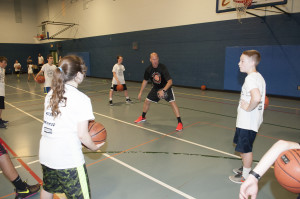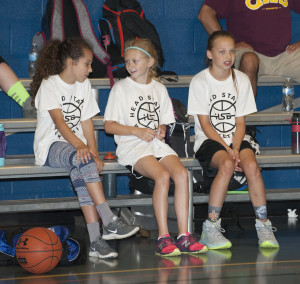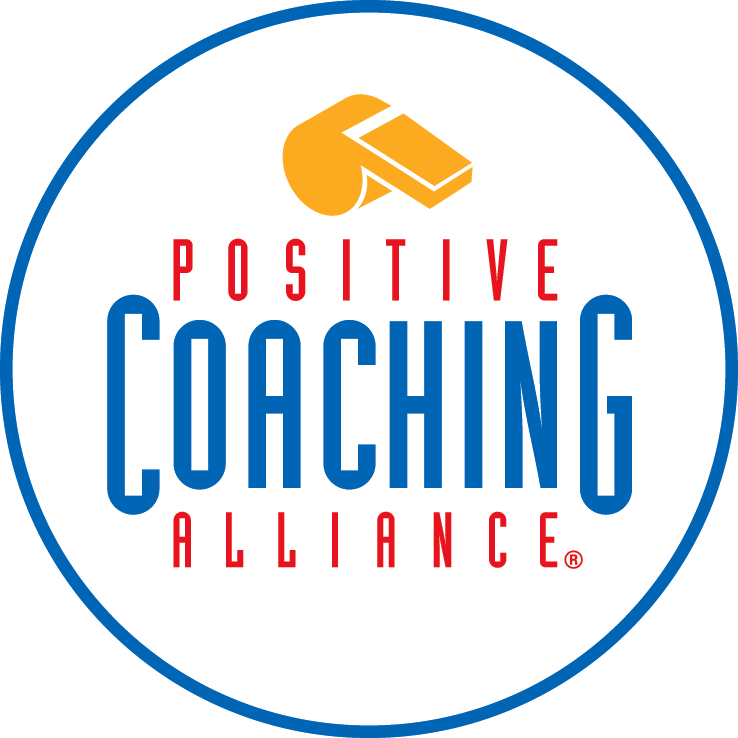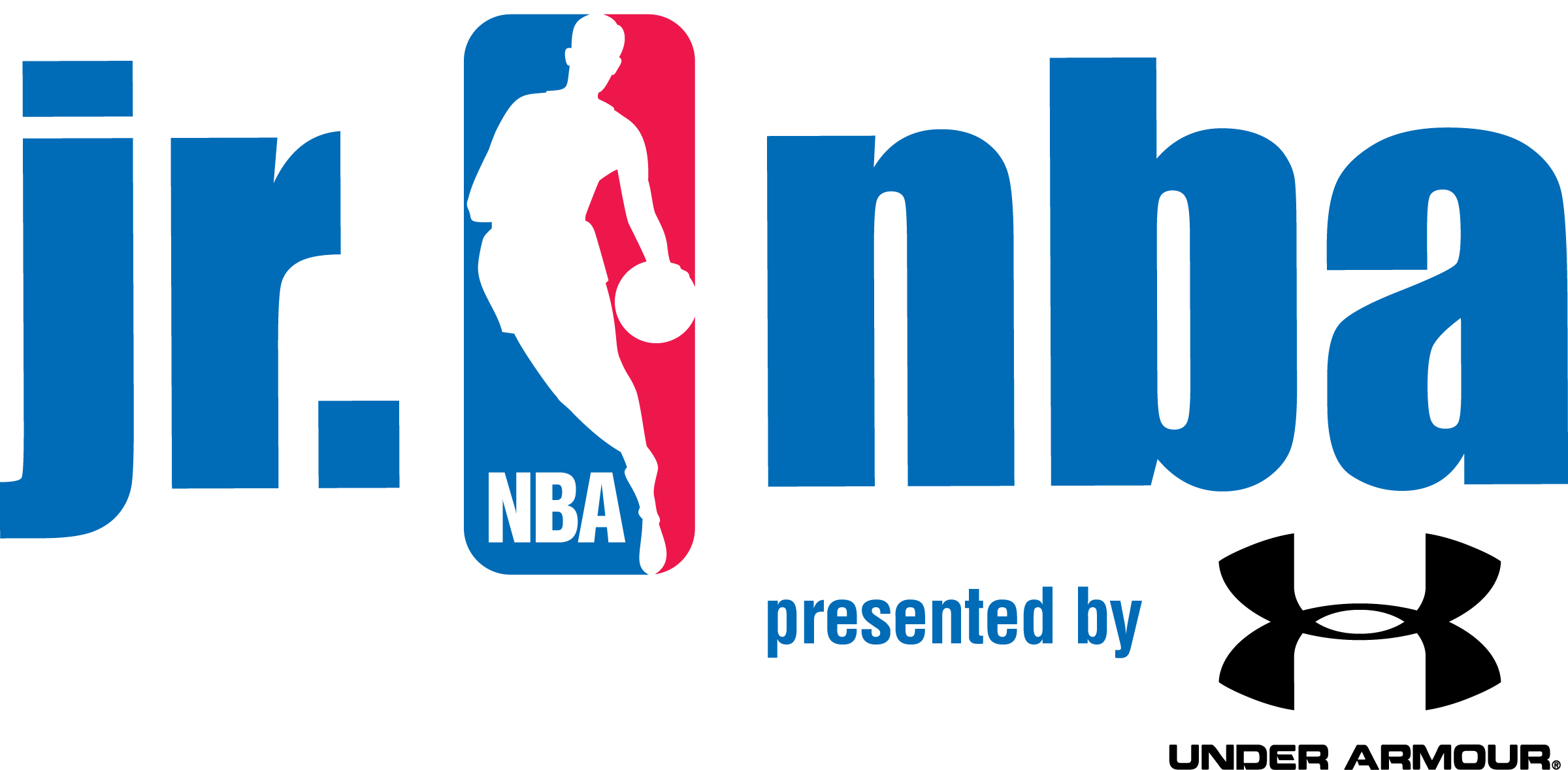
Basketball on the Edge – Can You Get 1% Better Every Day? – Vintage Edition

How can my son or daughter get better and make the team next year? How can they go from being a bench player to a starter? How can they go from being a starter to being the best player on their team? These are questions I hear from parents all the time. There is no one magic bullet that will suddenly transform your young child into a superstar with multiple college scholarship offers in hand, but I have recently come across a concept that is so simple in its approach that any player can do it and get better.
What is this concept? It is called Kaizen. (If you want to read the history of where the term came from you can read about it here – https://en.wikipedia.org/wiki/Kaizen) In very simple terms Kaizen means “continuous improvement”, but what does that mean from a basketball perspective and how can your child apply it to become a better basketball player?
Sustaining an effort is the most important thing for any enterprise. The way to be successful is to learn how to do things right, and then do them the same way every time. Over the length of a season, a correlation always appears between great effort and great overall numbers. It may not show from one game to the next, but in the long run superior effort is reflected in the win column. – Pat Riley
Get 1% better every day! Sometimes the road ahead of a young player can look very daunting. Other players are much more skilled, or stronger, or faster. How can a young player “jump” a level and really improve? Help your child make continuous 1% daily improvement their goal.
“When you improve a little each day, eventually big things occur. Not tomorrow, not the next day, but eventually a big gain is made. Don’t look for the big, quick improvement. Seek the small improvement one day at a time. That’s the only way it happens — and when it happens, it lasts.” —John Wooden
How do you help your young player implement the concept of Kaizen into their basketball training? Have your child ask them self this question every single day: What’s one small thing I can do today that would make me a better basketball player?
What does that look like on a daily basis? Pick a reasonable amount of time for your young player’s age. (Start small, 10 minutes a day. After a while they can add time depending on their age, motivation, and desire to improve.) Then, simply practice a particular skill for that set amount of time each day. Let’s say your child wants to be a better ball handler this coming season. If they spend 10 minutes handling the ball EVERY day for the next 10 weeks until their official practices start they will be better. They key to Kaizen is the daily continuous effort that yields small 1% gains.
The Kaizen approach to improving your game completely breaks down the big, overwhelming goals into small daily increments. Getting 1 % better encourages action. The small successes a young player experiences compound on each other and start building momentum, which leads to taking bigger and bigger actions, (like adding minutes to their daily practice time).
In addition, one of the key components of Kaizen is that there is no magic bullet that will suddenly make them a great player. Change comes through small, continuous improvement. Instead of wasting time searching for the miracle that will change everything, Kaizen helps a young player direct their attention to their daily workout and reminds them: “You already know what you need to do. Get to work and find small ways to improve along the way.” This is a great message for your young player to hear and internalize, especially when it doesn’t always come from you, the parent nagging them to practice every day. Once their daily workout is in place intrinsic motivation should take over.
Success is a few simple disciplines, practiced every day; while failure is simply a few errors in judgment, repeated every day. —Jim Rohn
Finally, Kaizen isn’t a “one and done” approach to basketball training. It’s a process of continual improvement. Your child will never “arrive” as a basketball player with Kaizen, so the temptation to sit back and relax once they’ve seen a bit of improvement is reduced.
Success isn’t owned, it’s rented. And the rent is due every day. – JJ Watt
Start getting 1% better today!
Click here to register for one of our upcoming programs!
Sign up now to get a “Head Start” on your competition with our free basketball tip of the day delivered straight to your inbox. Click below, enter your email and we’ll also send you our E-Book, “Mental Toughness, Improve Your Brain – Improve Your Game”.
Basketball on the Edge – Fully Invested by Bob Walsh

In this article Bob Walsh shares 21 ways that players can demonstrate that they are fully invested. I love this and plan on using it with my kids’ AAU Teams this spring. A great read for players, coaches, and parents.
What does it really mean to be fully invested?
Fully invested players are selfless. They think about the team first…
Click here to read the article by Bob Walsh
Click here to register for one of our upcoming programs!
Sign up now to get a “Head Start” on your competition with our free basketball tip of the day delivered straight to your inbox. Click below, enter your email and we’ll also send you our E-Book, “Mental Toughness, Improve Your Brain – Improve Your Game”.
Basketball on the Edge – The Case for Humility in Youth Basketball – Vintage Edition

“Discipline and diligence are up there on the list, but one of the most important qualities of many really successful people is humility. If you have a degree of humility about you, you have the ability to take advice, to be coachable, teachable. A humble person never stops learning.” – Todd Blackledge
Beyond the quote: The ability to be humble allows you the strength to grow and develop into a class with so few. Many people self-claim to be different but it’s those who do things without saying a word that get my nod. There’s nothing wrong with being a self-promoter but it’s the words or actions you chose and how you display them that can make all the difference. Those who have the ability to handle humility get attention two ways- love and support by many…..or the jealous reaction of those who can only wish.
Youth basketball today often recognizes the self-promoting organizations, teams, coaches, players, and parents. The win at all costs mentality encourages everyone to be more brash and tell the world how great they are. Local and national “scouts” are ranking players in elementary school! Have these “scouts” seen every 5th grader in the country to know who is the best? Organizations and coaches boast about their rankings and tournament victories, not about how they are developing kids into better people as well as better players.
No matter how successful you are it pays to stay humble. When you think you have made it as a player, coach or parent, chances are someone else is about to pass you up. When you stay humble, you are always striving to be better because you know there is no moment of arrival. You are constantly working to learn more and be better than you are today.
It’s what you learn after you know it all that counts. – John Wooden
Advice for staying humble.
Players – Even the best players in the NBA have coaches and personal trainers that help them learn and grow as players. Great players will listen to anyone that can help them get better. Don’t tell me how good you are, show me with your play and your coachability.
Coaches – Always work at your craft and learn from other coaches. Don’t act like you invented the game and your strategies are the only ones that work. When you win, give players the credit. When you lose, take the responsibility.
Parents – Don’t tell everyone how great your kid is. No one wants to hear it, even if it’s true. Be proud of your young player regardless of the outcomes on the court. Search out coaches and organizations that are interested in developing kids into good player AND good people. Just because your kid is on the 2nd ranked team in your state doesn’t mean they are learning, getting better or having fun. Be proud, be supportive, and be humble.
Don’t go into a game believing you are better than your opponent, you must show them first.
Click here to register for one of our upcoming programs!
Sign up now to get a “Head Start” on your competition with our free basketball tip of the day delivered straight to your inbox. Click below, enter your email and we’ll also send you our E-Book, “Mental Toughness, Improve Your Brain – Improve Your Game”.
Basketball on the Edge – My Son Did Not Start Today by Chris Fore

Chris Fore shares a great message to parents in this article. As long as you are fine with what happens, your child will be fine with it. Here are some points Chris makes in the article.
If you’re teaching your kids all along the way that the TEAM > i, then when he doesn’t start, it won’t be a big deal.
If you’re teaching your kid to shake the coach’s hand, and say thank you after every single practice and game, he will have a healthy respect for his coach; it won’t matter when he doesn’t start.
If you teach your kid that every single person has a role to play on a team, starting at a young age, then it won’t be a big deal when he doesn’t start.
If you teach your kid to “just play hard and have fun,” then it won’t be a big deal when he doesn’t start.
If you use teachable moments while watching the NFL to teach your child that you don’t always get what you want, it won’t be a big deal when he doesn’t start.
Click here to read the article by Chris Fore
Click here to register for one of our upcoming programs!
Sign up now to get a “Head Start” on your competition with our free basketball tip of the day delivered straight to your inbox. Click below, enter your email and we’ll also send you our E-Book, “Mental Toughness, Improve Your Brain – Improve Your Game”.
Basketball on the Edge – The Perfect Coach – Vintage Edition

As a youth basketball parent it is very important for you to choose the right program or coach for your young player. There will be no greater factor in your child’s development as a basketball player. What should you be looking for in a coach or their program? Read more about choosing the right program here and what a youth basketball practice should look like here. These two articles should give you a great starting point for making a decision about who should be coaching your young player.
Once you have selected the coach, you (and your young player) may come to realize that your coach is not perfect. How do you help your young player make the most of their opportunities despite the perceived “faults” of the coach?
The first thing to remember is that the “perfect” coach does not exist. Every player that has ever played the game has at one time or another disagreed with their coach. Michael Jordan resisted Phil Jackson’s Triangle Offense at first. Of course, Jackson was unproven at the time, but he turned out to be a pretty good coach. He has won 11 NBA Championships! There are players that play for Mike Krzyzewski at Duke or John Calipari at Kentucky that don’t think their coaches know everything or make all the right decisions. These are coaches that win consistently without fail. There is a good chance they know what they’re doing and yet their own players still feel like these coaches make mistakes in strategy, skill development, or playing time.
As a youth basketball parent you may question some of the coach’s decisions. Unless your concern relates to the safety of the players you should keep it to yourself. The coach is in a much better (and unbiased) position to make decisions regarding the team than you are.
What advice should you give your young player when they disagree with a decision made by their coach?
First of all, make sure they know they are not alone. You can cite the examples above to help them understand that even the players who play for the best coaches in the world sometimes disagree with their coach. When I was in college, I disagreed with a personnel decision my coaches made during my junior season. I felt the decision cost my team the opportunity to win more games. I talked about it with teammates, questioned it in my head, but I never let a poor attitude or poor body language sabotage me, my coach, or my team. Disagreements are a natural part of the coach-player relationship. If your child has a high basketball IQ and knows the game well it is very likely that they may disagree with the coach from time to time. It is critical to handle those disagreements either in a private conversation with the coach or for your young player to keep their thoughts to themselves. Poor body language, eye rolling or not doing what you are asked to do are great ways to anger a coach and put yourself in the doghouse.
Second, great coaches often do things differently. That is what makes them great. They may run a unique offensive system or create unusual drills. The coach may establish their winning culture in ways that can seem strange at first glance. Help your young player learn to deal with and appreciate those differences rather than complain about them.
Third, smart players don’t spend time worrying about things they cannot control. Remember, every player has dealt with this issue. Teach your young player to control their attitude, effort, hustle, and preparation. Time wasted on complaining is time that could be spent getting better or making a positive contribution to the team. So they disagree with their coach? He or she doesn’t do everything exactly the way your young player would? Help them shake it off and reemphasize the things they can control. Teammates often get caught up in the cycle of questioning the coach. Every player and team does a certain amount of talking (complaining?) about their coach. It is the nature of the game. On the best teams that kind of talk is quickly put aside and the focus is shifted back to what we as players can do to help our team be successful.
Fourth, as a parent, if you are always saying “If only the coach would do this…or not do that” it rubs off on your young player and they may start making excuses rather than looking for solutions. Help your young player look for ways to improve their game rather than placing the blame on the coach. You can’t “improve” your coach other than by getting better and helping your team to win more games.
Rather than bemoaning the fact that your coach isn’t perfect, look for ways you can improve as a player. Be about solutions not excuses!


